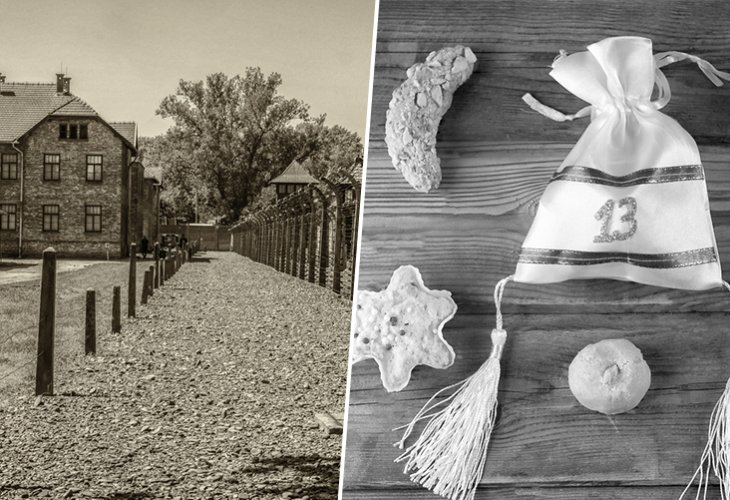The Holocaust
Faith in the Holocaust: A Bat Mitzvah and Bar Mitzvah Inside Bergen-Belsen
From jars of jam to smuggled tefillin — moments of resilience in the face of despair
 (Photos: Shutterstock)
(Photos: Shutterstock)Bilha Shefer was born in Germany and immigrated with her family to the Netherlands after Kristallnacht. When Germany invaded the Netherlands, her family tried to escape to England, but their attempt failed. They were deported to Westerbork camp and later transferred to Bergen-Belsen. Their lives were spared thanks to a prisoner exchange agreement, and eventually they immigrated to Israel through Turkey.
Bilha shared her memories of her Bat Mitzvah “celebration,” and her brother’s Bar Mitzvah, during those years:
*“The whole time we were in Westerbork, we received packages from my brother, who was outside the camp with the Dutch underground. We got letters, and we got packages. These packages had different things that could be obtained and preserved such as cans, a jar of jam, and a bar of chocolate.
When we learned we were being sent to Bergen-Belsen, they handed out tea and bread with this watery jam, which later became our regular food in Bergen-Belsen. Then my mother said: ‘Let’s gather here by the bed and eat something.’ The family sat together, and my mother bent down to her bag and pulled out a jar of strawberry jam, which I loved very much. Sometimes my brother had sent jam in his packages, but we hadn’t received one for a long time. Everyone was surprised to see the jam, and my mother said to me: ‘Mazel tov, it's your Bat Mitzvah, your birthday.’ I was 12. My mother remembered to make an event of it, and she kept that jar hidden just for me. That was my Bat Mitzvah celebration — on the day we arrived in Bergen-Belsen.”*
She continues: “Later, when my brother Meir turned Bar Mitzvah, my father arranged for someone to teach him how to be called to the Torah, to bless, and even to read a little. People leaving the camp often left behind abandoned bags and others would check inside. That’s how my father found a pair of tefillin that someone decided he no longer needed. My father had them checked for kashrut, and they were fine. I even managed to arrange a gift for my brother. A woman in our area had forgotten her prayer book, and instead of letting it get lost, my mother told me: ‘Take it, keep it safe.’ It was a beautiful siddur. I wrote a dedication in it for my brother and that was my Bar Mitzvah gift to him.”
“My other brother, who was outside the camp, sent a package with a bottle of wine. My mother baked a cake from old bread. I don’t know exactly how she did it, but she crumbled the bread, mixed it with jam, and baked it on the big stove that stood in every barracks. And so, we had a Bar Mitzvah! My brother was called to the Torah, he even read a little, he began putting on tefillin, they drank l’chaim, and ate cake. That was my brother’s Bar Mitzvah.”

